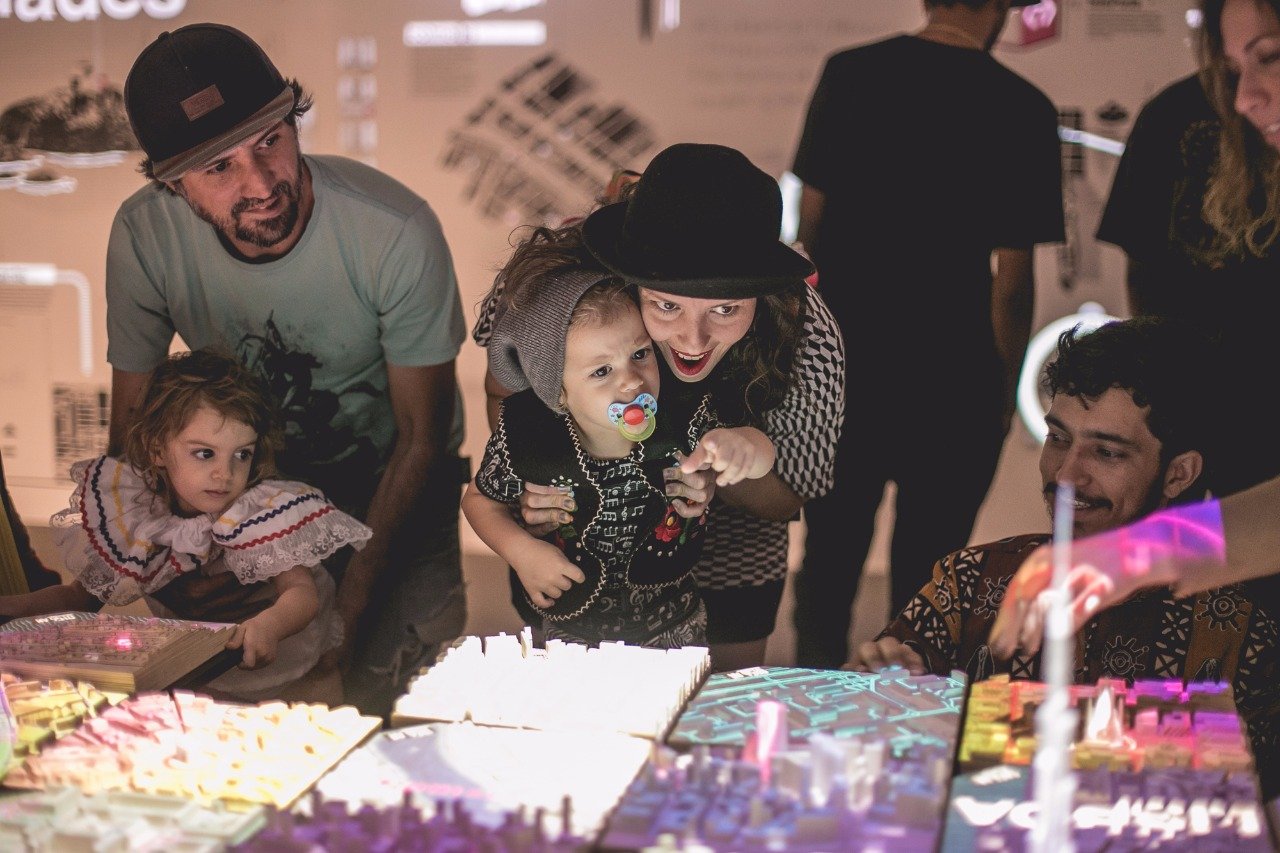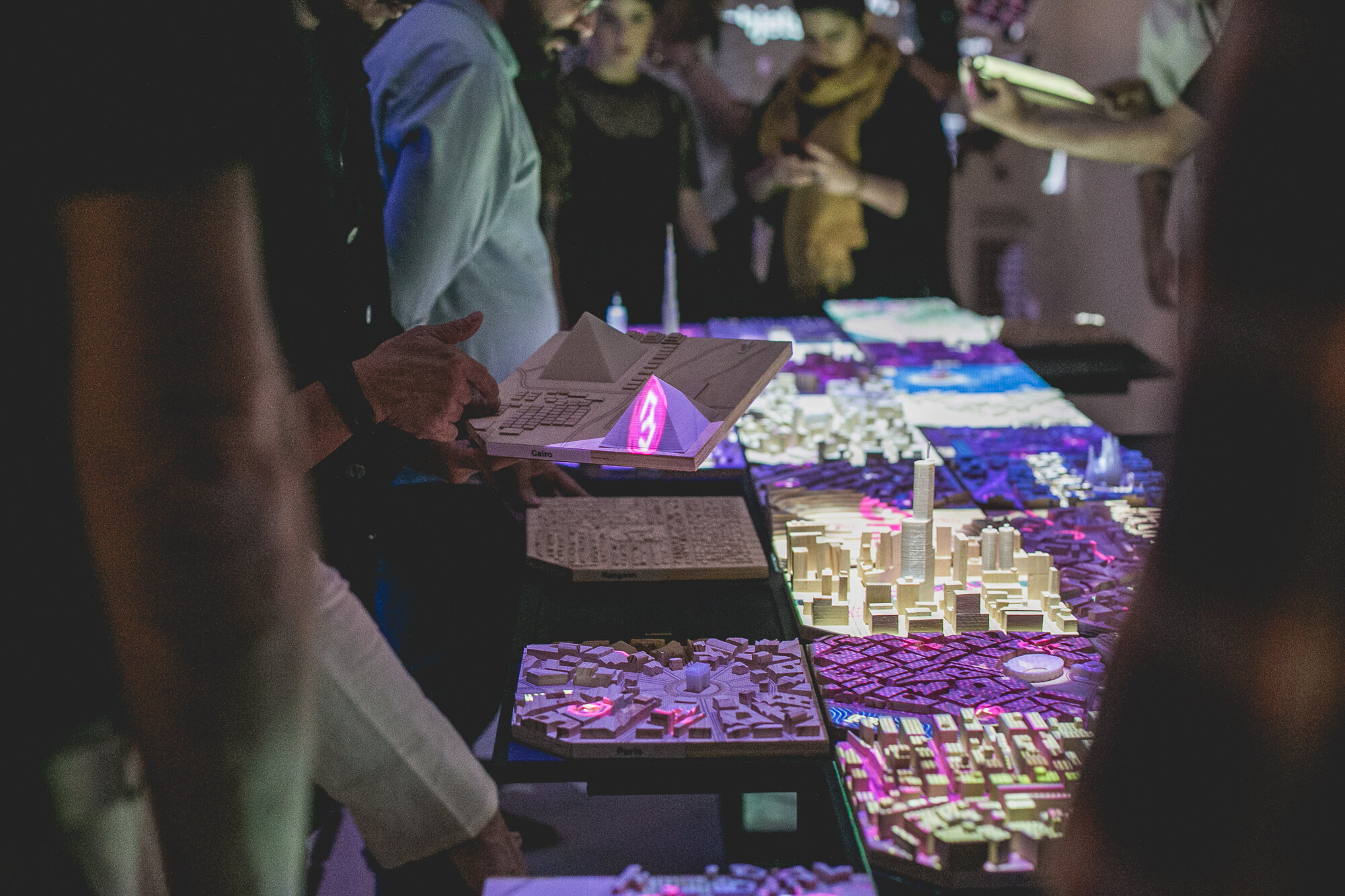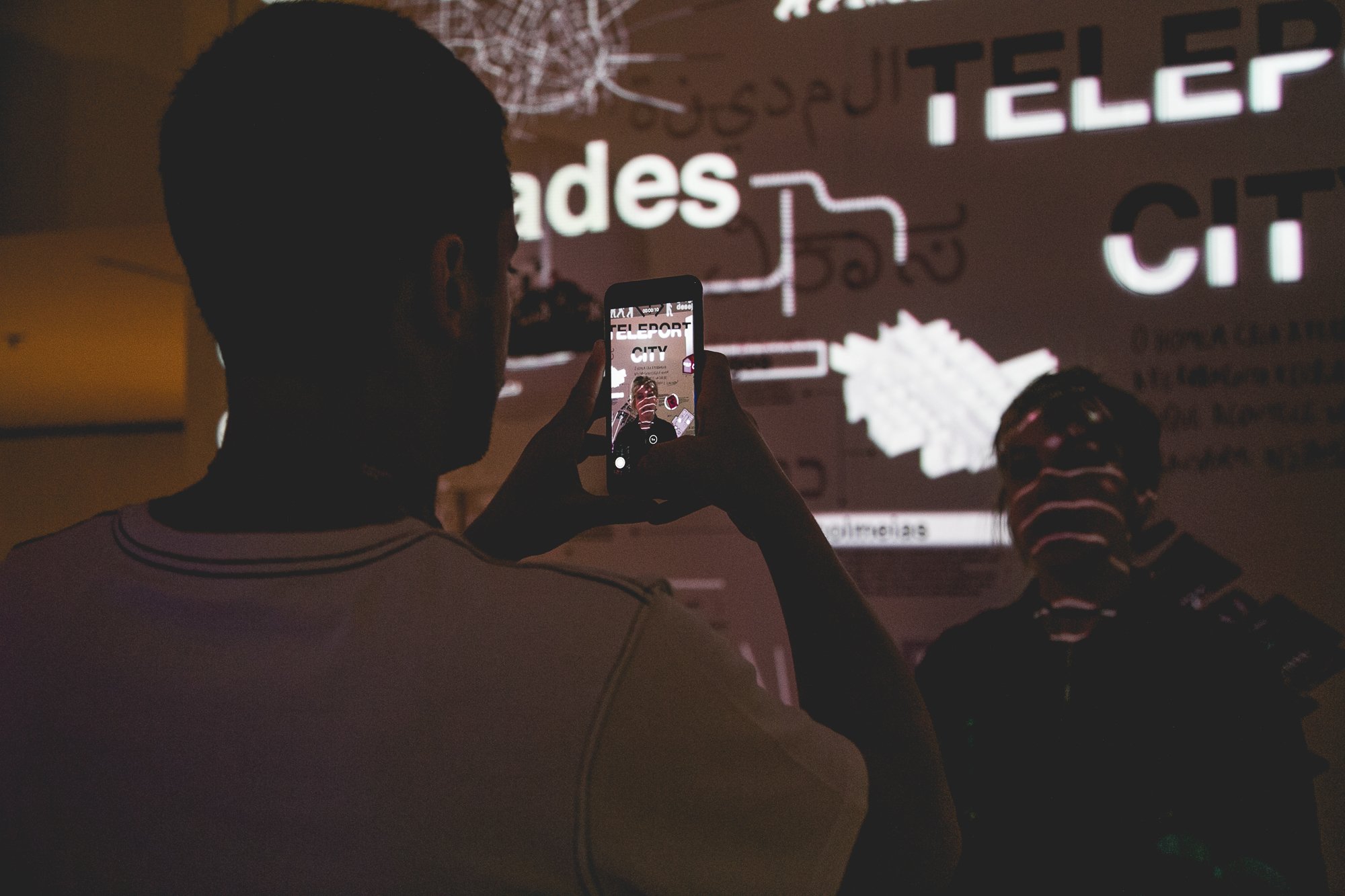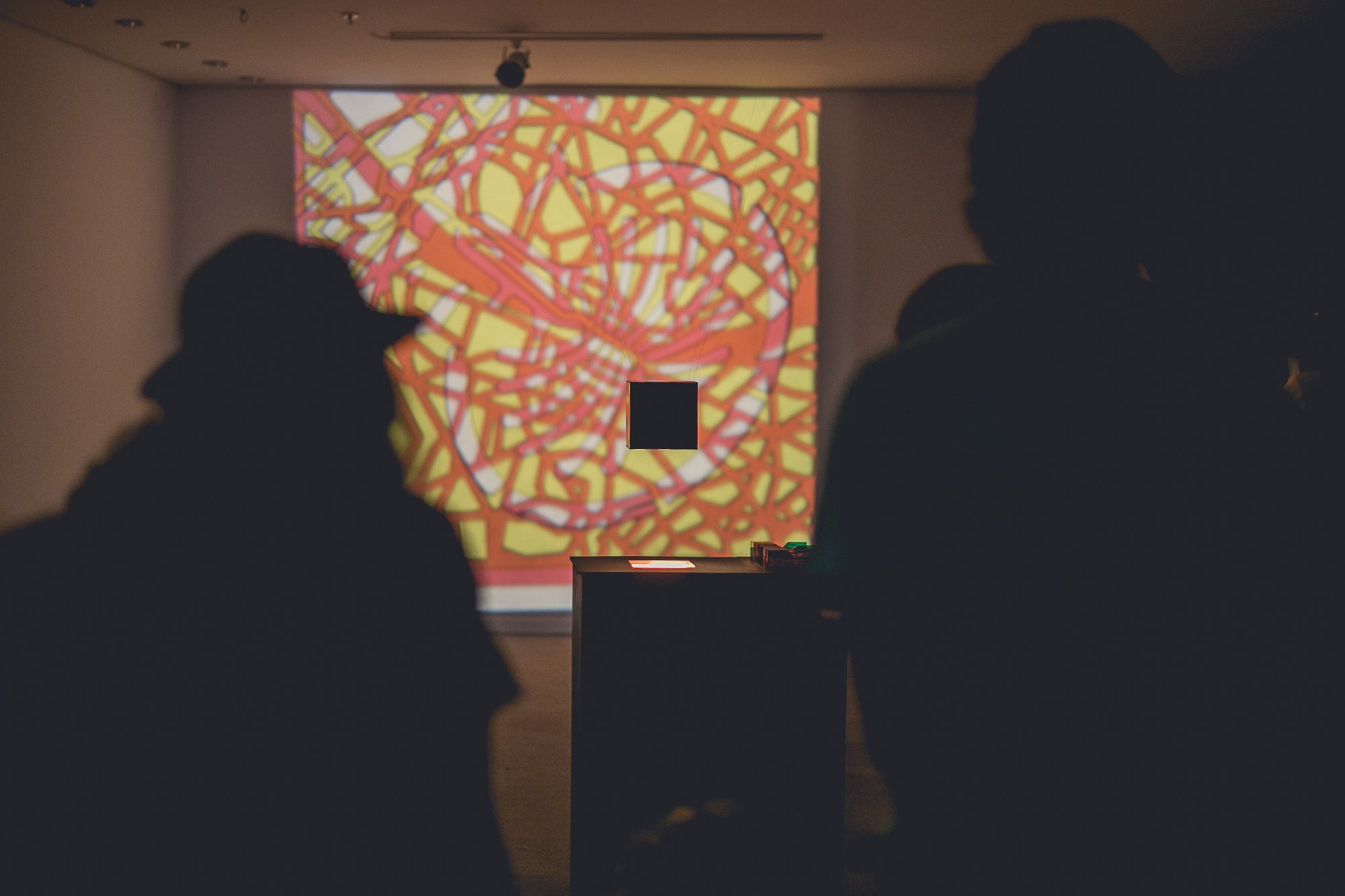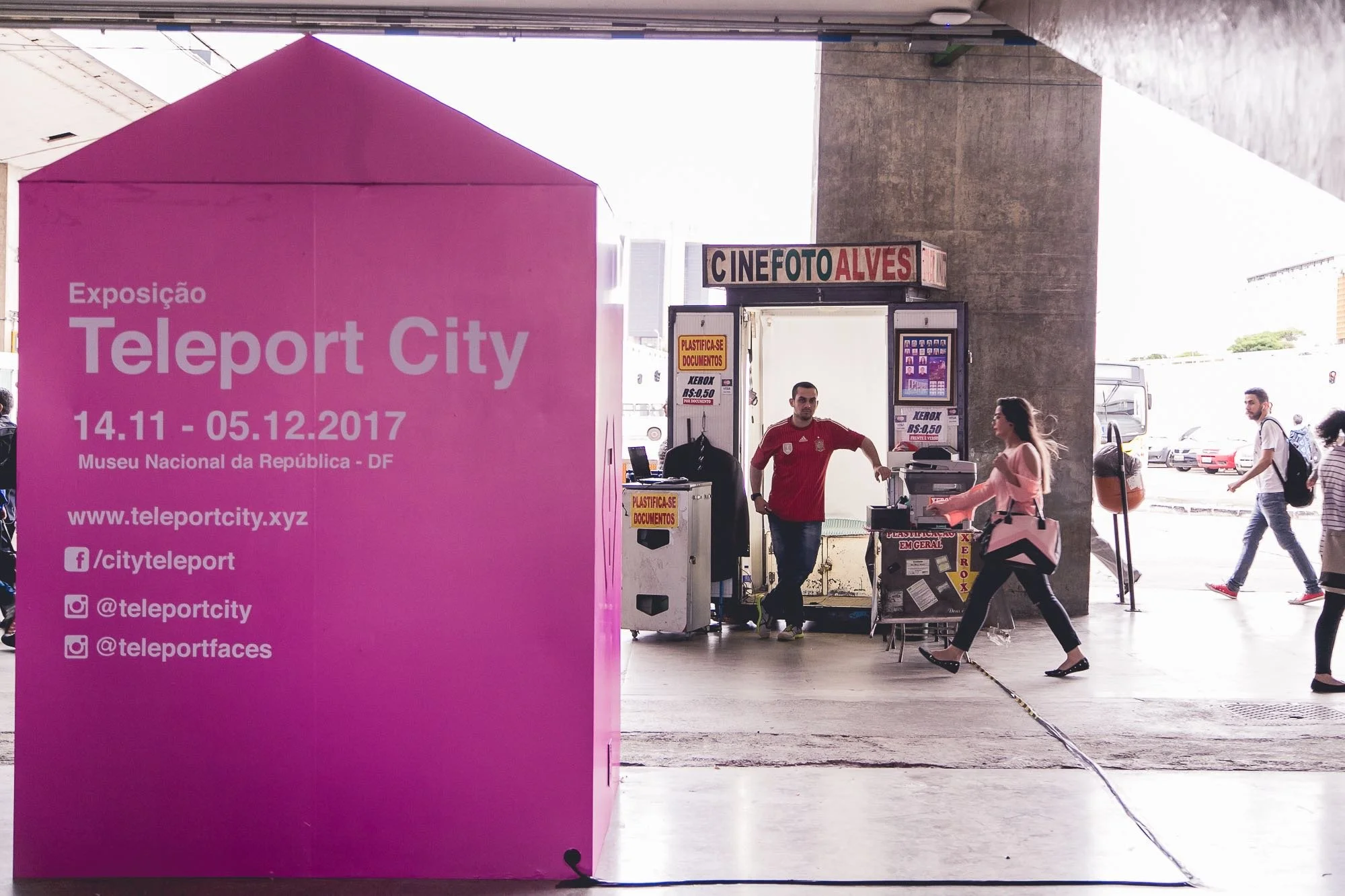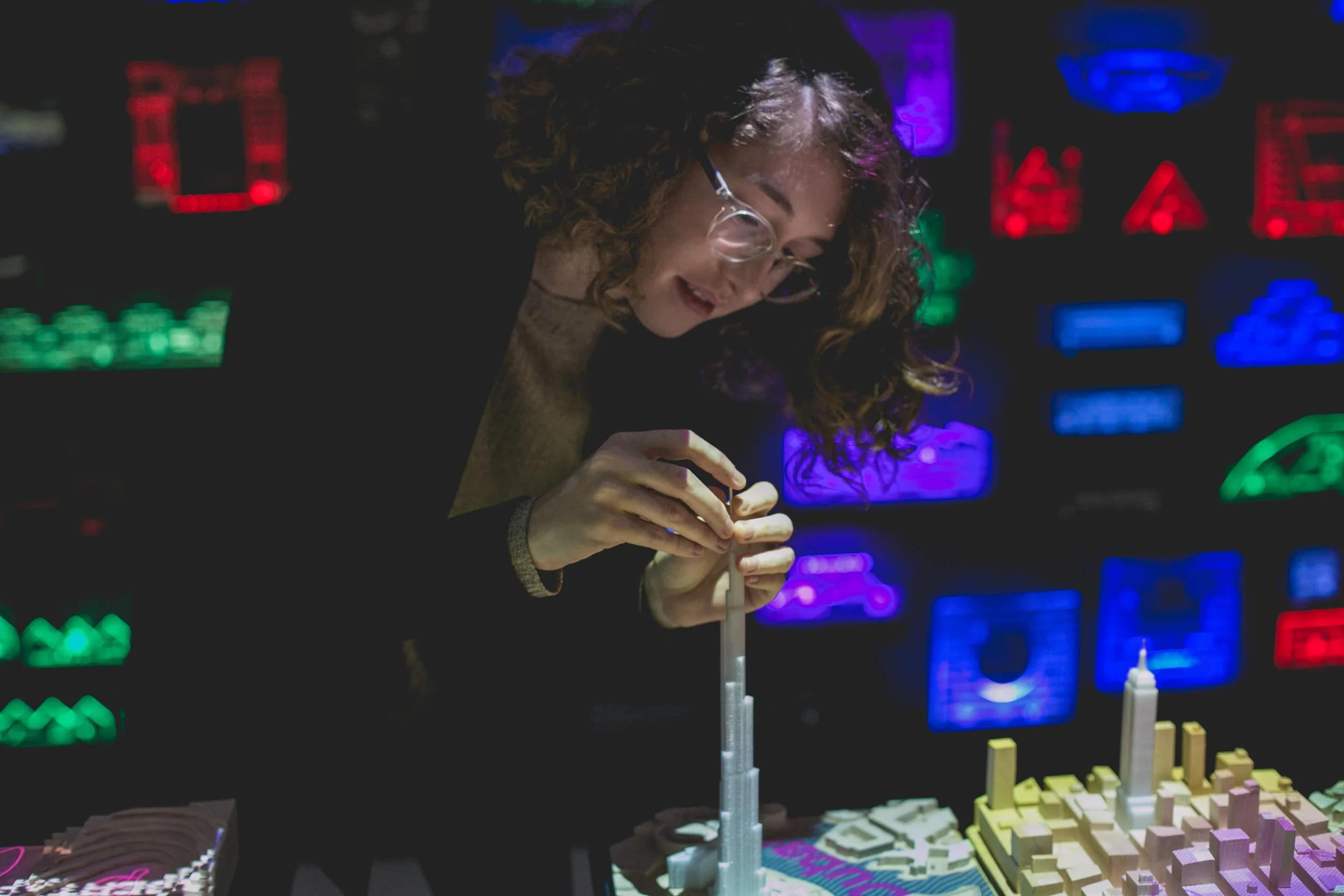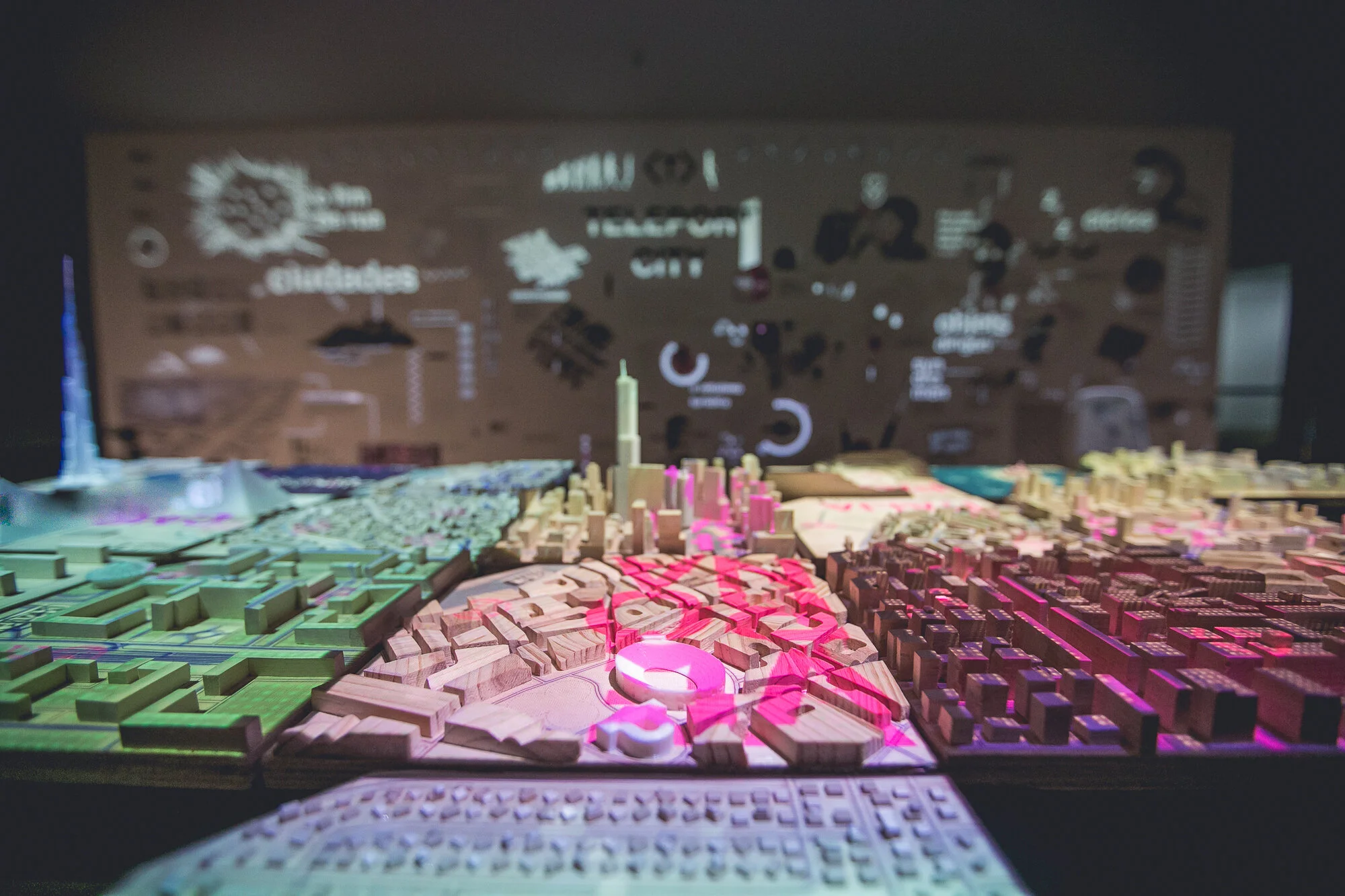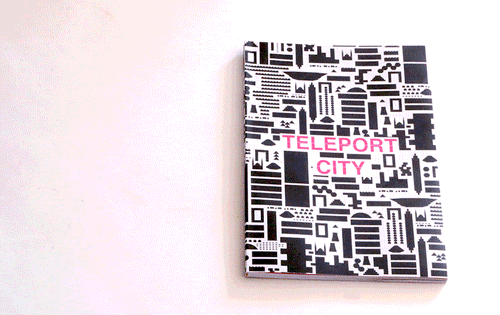<T>
What happens to the world when transportation is limitless?
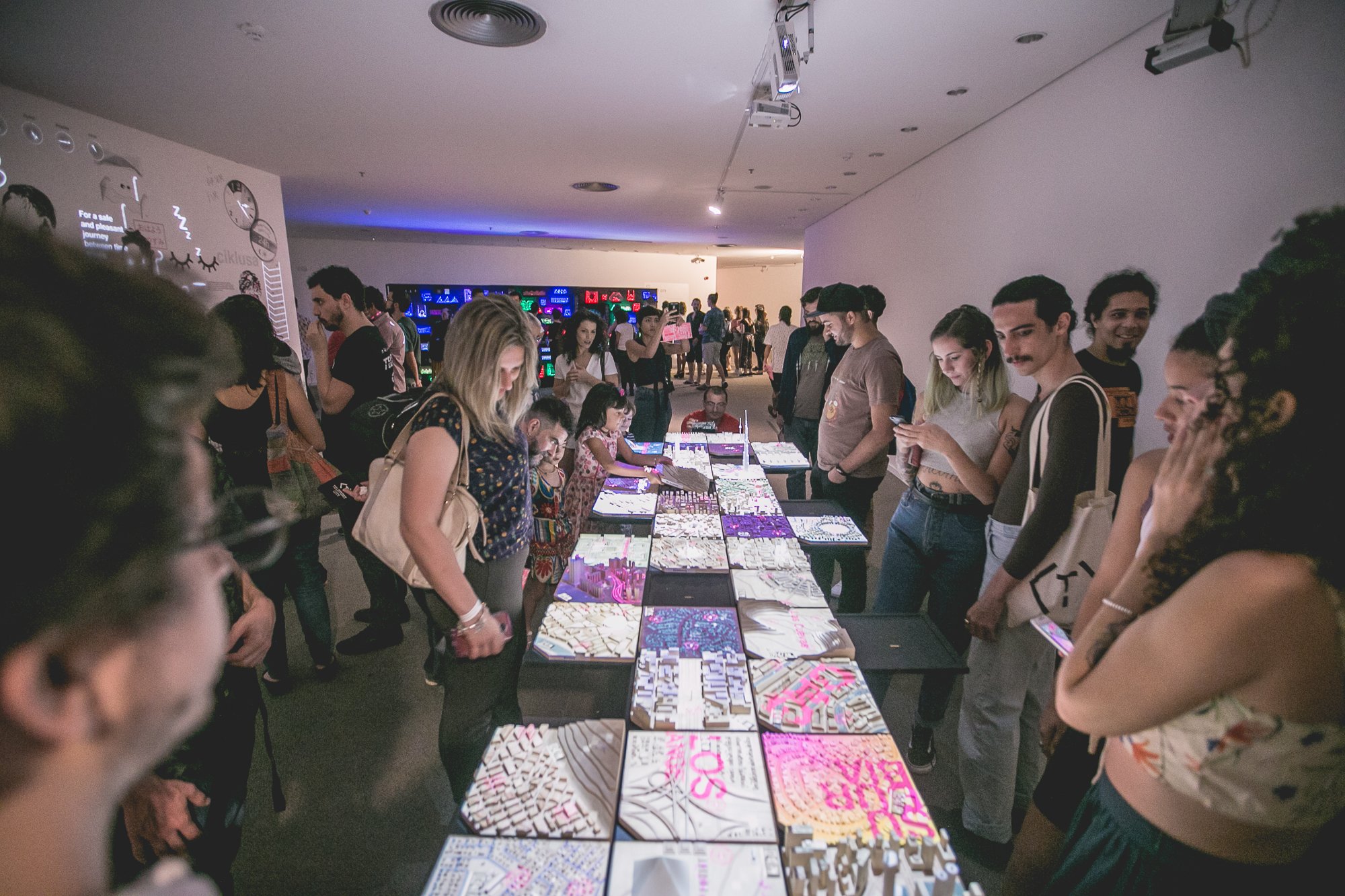
Teleport City
Museu Nacional da República - Brasilia | Itaú Cultural - São Paulo | SESC Pinheiros - São Paulo | Museu dos Futuros Possíveis, Inst. Tomie Ohtake - Vitória | Brazil
Teleport City investigates extreme futures of mass transportation and its effects on cities and society. It is composed of multiple interactive installations, which were exhibited in public museums across Brazil with free public access.
By supposing the advent of teleportation as the main means of mass transportation, Teleport City reflects on time and space. In the <T> world, not only does information circulate instantaneously on a global scale, but so do people and matter. What happens with streets when cars are no longer needed? What happens with the notion of time when people are moving instantly across time zones?
Radical modernity takes material form in Teleport City; it is translated into unprecedented cartography, new products to facilitate significant displacements, unconventional ways of dwelling, social movements, obsolescence of vehicle infrastructure, emergence of new syndromes, redefinition of speed, elimination of transitional space, and ultimately, a revolution in the urban landscape. A world without borders promises the most fantastic of experiences, but these uprooting possibilities wouldn't occur without consequences. <T> modifies every single human relationship, increasing contrasts while simultaneously erasing cultural differences on our tiny planet Earth.

<T> started as my graduation project at the school of Architecture and Urban Design in the University of Brasilia.
Soon to be a game.
Exhibited at Museu Nacional da República, Espaço Itaú Cultural, SESC Pinheiros, and Museu dos Futuros Possiveis (Tomie Ohtake)
Director and thesis author: Gabriela Bìlá
Academic advisor: Elane Ribeiro Peixoto
Technical director: Felipe Brito
Executive producer: Henrique Rocha (Hiper Espaço)
Soundtrack: Confronto Soundsystem
Motion design: Lucas Seixas
Art assistants: Ana Luiza Rein, Pedro Ribs
Electronics: Itamar Pontes
Programming: Luiz Moraes Neto
Fabrication: Guilherme Ieri, Leonardo Moura
Photography: Naiara Pontes
Teleport City was funded by the Brazilian Ministry of Culture's program for the promotion of art and technology.



